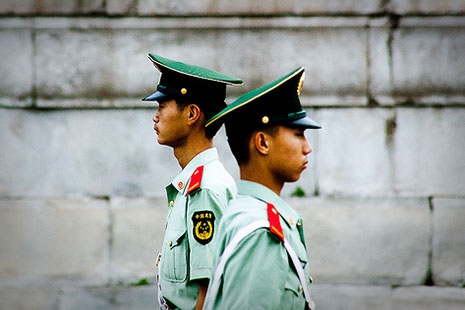The China Choice: Why America Should Share Power
By Hugh White | Black Inc | $30
IN THIS new book Hugh White makes an important and challenging case for the United States to share power with China in the Asia–Pacific region to avoid possibly catastrophic warfare in the near future. He argues that China’s spectacular economic rise could lead to war unless the two powers can agree to share leadership in a concert of great regional powers made up of the United States, China, Japan and India.
How persuasive readers find this argument will depend on how pessimistically or optimistically they view the strategic possibilities White is canvassing. There is certainly force in his concerns about the risks of conflict between the United States and China, but his proposed solution leaves complex and contentious issues unresolved.
The China Choice is a work of clarity and passion, elaborating on concerns White raised in his seminal 2010 essay, Power Shift. But, perhaps inevitably, the book seems somewhat equivocal. White is dealing with historical uncertainties: he has focused on the drift towards US–China competition for political, strategic and military superiority, but it is not clear that power-sharing would solve the problem.
Anticipating that he might be accused of appeasement, White argues that China is fundamentally unlike Nazi Germany. “China is ambitious, but it is also cautious and conservative,” he writes. “It seems willing to balance its desire for increased influence with its need to maintain order and to avoid too direct conflict with the United States.” If that’s so, it would seem to blunt the urgent edge of White’s appeal for power-sharing – as, of course, might China’s massive $1.2 trillion holding of US debt in bills, notes and bonds (a reality that should concentrate the minds of hawks in Beijing and Washington).
White seeks to demonstrate strategic toughness by insisting that Washington must be willing to go to war if Beijing exceeds strategic limits set by Washington after the United States forsakes its primacy in the Asia-Pacific region, apparently by conceding China a sphere of influence. He wants America to keep a big stick in reserve, suggesting his own deep uncertainties.
He argues that America’s choices are to resist China, quit the region, or accommodate China. But might not the two powers move automatically towards a new strategic equilibrium if a “cautious and conservative” (and rich) China continues to rise relative to the United States? Such an equilibrium would be preferable to dangerous rivalry and would avoid the complexities of a European-style concert of powers.
White makes the familiar argument that the pace of China’s economic growth and rising productivity is undermining the relative strategic position of the United States. Perhaps so. But last week’s landing of an American exploration vehicle on Mars was a powerful demonstration of ongoing technological excellence and innovation. The United States is hardly a nation in decline, and it is still more powerful than China on many measures, including military resources.
White also seems willing to downplay Beijing’s increasingly aggressive behaviour in ASEAN and in the South China Sea in recent times. Too often, Beijing looks like a bully trying to test the strategic resolve of the United States and other countries in the region. There is a case for standing firm until Beijing shows more propensity for compromise. In fact, White might have conceded too much too soon to China, even if his power-sharing argument is accepted. American resilience may still blunt or delay the Chinese charge towards global economic (and military) primacy.
Above all, perhaps, White’s argument requires largely uncritical tolerance of China’s egregious domestic human rights abuses. White’s view is that China has lifted millions of its citizens out of poverty and that accepting the legitimacy of its authoritarian regime is preferable to a major war. That may be admirably pragmatic and utilitarian, but given China’s record (remember Tiananmen Square) it represents a surrender of western moral values that could consign Chinese citizens to extreme suffering with only impotent western objections.
Despite these reservations, The China Choice is essential reading for policy-makers in Canberra. As White writes: “There are no good outcomes for Australia if the United Stated States and China become bitter rivals”. No one would dispute that observation, but White may be asking the United States to pay a high and possibly unnecessary price to placate China. •




